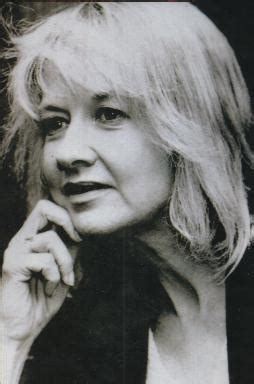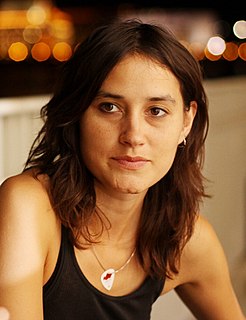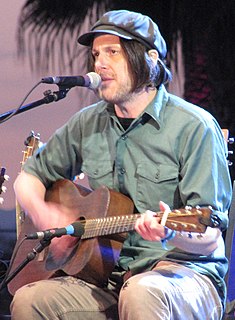A Quote by Adam Braver
If one is writing in a way that is questioning, or even raising questions about how we are supposed to negotiate the world - even if it is about the self, or love, or how human beings relate - I do think that has a certain subversiveness to it. Even if it's not on a geopolitical level.
Related Quotes
Lately, I'm thinking a lot about, in parenting and in my writing, how to create a language about sexism in a way that is attractive and approachable to this age group. I can teach my daughter about not talking to strangers but I can't teach her about how to succeed in a sexist world or even how to exist as a body in a sexist world. I want to begin by asking girls what they want and why they want it? Interrogating that. If this is the sex life you want, what makes you think you want that? I imagine the only way to authentically get at sexuality is by asking those questions.
I think that every educator, indeed every human being, is concerned with what is true and what is not; what experiences to cherish and which ones to avoid; and how best to relate to other human beings. We differ in how conscious we are of these questions; how reflective we are about our own stances; whether we are aware of how these human virtues are threatened by critiques (philosophical, cultural) and by technologies (chiefly the digital media). A good educator should help us all to navigate our way in this tangled web of virtues.
Behind all art is an element of desire...Love of life, of existence, love of another human being, love of human beings is in some way behind all art — even the most angry, even the darkest, even the most grief-stricken, and even the most embittered art has that element somewhere behind it. Because how could you be so despairing, so embittered, if you had not had something you loved that you lost?
Human beings are funny. They long to be with the person they love but refuse to admit openly. Some are afraid to show even the slightest sign of affection because of fear. Fear that their feelings may not be recognized, or even worst, returned. But one thing about human beings puzzles me the most is their conscious effort to be connected with the object of their affection even if it kills them slowly within.
If you think about work, it's just this endlessly fascinating subject. We spend at least half of our waking hours working. So it becomes this incredible window into a whole variety of things: who we are human beings, how the economy works, how people relate to each other, how stuff is made, how the world spins on its axis.
I think all writing is about writing. All writing is a way of going out and exploring the world, of examining the way we live, and therefore any words you put down on the page about life will, at some level, also be words about words. It's still amazing, though, how many poems can be read as being analogous to the act of writing a poem. "Go to hell, go into detail, go for the throat" is certainly about writing, but it's also hopefully about a way of living.
I'm supposed to be a christian, but most days I don't feel like I can even presume to say that about myself any longer. I have a lot of mad left over. When I can't sleep, I think about the other people who didn't care how much pain and trouble they caused me. And I think about how good I'd feel if they died.
If my pictures are about anything at all, I think it's about trying to make a connection in the world. I see them as more optimistic in a certain way. Even though it's very clear there's a level of sadness and disconnection, I think that they're really about trying to make a connection and almost the impossibility of doing so.
So basically, it just really represents our band and we didn't even think about that when we decided to call it 'Warpaint'. And then through getting asked questions about "why is that song called 'Warpaint'?" - then we realised, "oh my god! THAT'S why!" And we didn't even know why... but that's why! And then 'Shadows' is just... I love that song and it's personal to me. I love how it turned out!!
I feel like we're so limited by the context at which we look at life. The way we look at who we're supposed to be and how we're supposed to love... everything. I feel like that, in and of itself, is a project of a lifetime: the problem of how to break out of the limiting context that is imposed upon us by the educational system, by the church, by our parents... As a kid I rejected it without even thinking about it. Now that I'm a little older, I see how deeply destructive it really is.



































